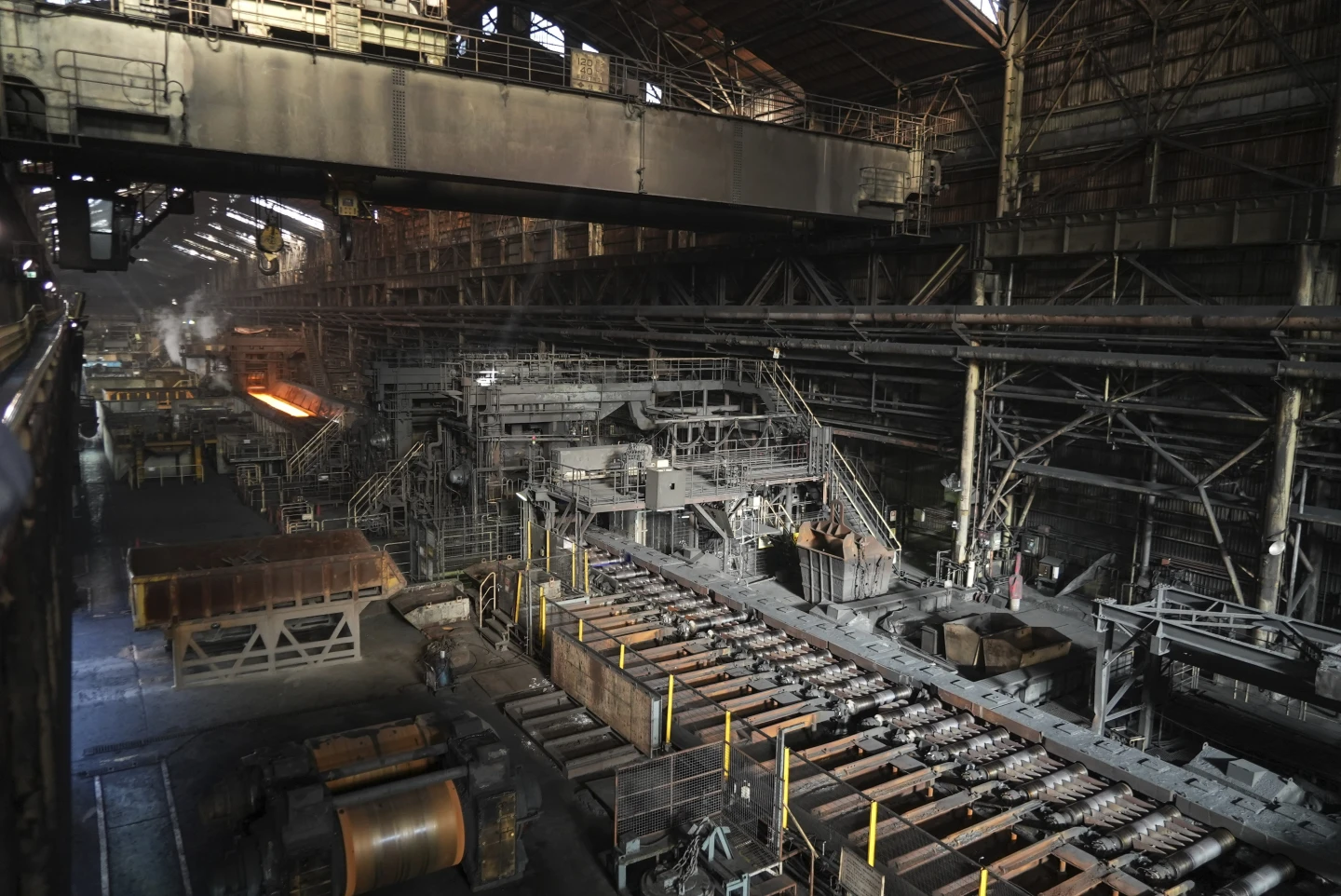President Joe Biden said that by rejecting a Japanese company’s takeover of US Steel, he was saving good jobs in America’s heartland. He may be putting them in danger instead.
In its roughly $15 billion bid for the famous Pittsburgh-based steelmaker, Nippon Steel pledged to invest $2.7 billion in U.S. Steel’s outdated blast furnace operations in Gary, Indiana, and Pennsylvania’s Mon Valley. It also promised not to cut production capacity in the United States for the following decade without first obtaining government consent.
“They were going to invest in the Valley,” said Jason Zugai, an operational technician and vice president of the United Steelworkers union local at a U.S. Steel facility in the Mon Valley. “They vowed to no layoffs for ten years. We will not have those commitments from anyone.
Zugai and a few other Mon Valley steelworkers backed the Nippon contract despite efforts from the union’s national leadership to oppose it.
Losing the Nippon-US Steel deal “will be a disaster for Pennsylvania,” according to Gordon Johnson, the founder of GLJ Research, which tracks US Steel stock on Wall Street. “I don’t understand. This is not in the workers’ interests. It is not in the interest of the shareholders of U.S. Steel.”
On Friday, Biden said he was stopping the Nippon takeover—after federal regulators deadlocked on whether to approve it—because “a strong domestically owned and operated steel industry represents an essential national security priority…. Without domestic steel production and domestic steel workers, our nation is less strong and less secure.”
The stock of U.S. Steel fell 6.5% on Friday following the news.
The decision, made less than three weeks before the president departs the White House, indicates a significant bipartisan movement away from free trade and open investment.
President-elect Donald Trump has previously spoken out against the Nippon takeover. “As President,” he said last month on his Truth Social platform, “I will prevent this transaction from occurring. “Buyer Beware!”
In a joint statement, Nippon and U.S. Steel termed Biden’s decision “a clear violation of due process and the law,” and signaled they would sue to save their deal: “We are left with no choice but to take all appropriate action to protect our legal rights.”
U.S. Steel was founded in 1901 as a combination of American corporate heavyweights J.P. Morgan and Andrew Carnegie, resulting in the world’s largest enterprise. U.S. Steel grew alongside the United States’ rise to global dominance during the twentieth century. U.S. Steel employed 340,000 workers in 1943, during the height of the World War II manufacturing boom.
However, international competition, first from Japan in the 1970s and 1980s and later from China, rapidly weakened U.S. Steel’s position, forcing it to close operations and lay off employees. The corporation today employs fewer than 22,000 people in a sector dominated by Chinese firms.
Over the years, the US government has fought to preserve U.S. Steel and other American steelmakers by levying import taxes on steel. During his first term, Trump imposed 25% tariffs on foreign steel, which Biden preserved or changed into import limits. In any case, trade barriers artificially raised the price of American steel, benefiting U.S. Steel and others financially.
U.S. Steel is profitable and has $1.8 billion in cash, which is down from $2.9 billion at the end of 2023.
United Steelworkers President David McCall said Friday that U.S. Steel had the financial resources to go it alone. “It can easily remain a strong and resilient company,” he told journalists.
However, U.S. Steel has stated that it requires the cash from Nippon Steel to continue investing in blast furnaces such as those in Pennsylvania and Indiana.
“Without the Nippon Steel transaction, U.S. Steel will largely pivot away from its blast furnace facilities, putting thousands of good-paying union jobs at risk and negatively impacting numerous communities in the locations where its facilities exist,” U.S. Steel said in September. The corporation has threatened to relocate its headquarters out of Pittsburgh.
On its own, U.S. Steel appears to be focusing on newer electric arc furnaces, such as its Big River plant in Arkansas, which can produce high-quality steel products more efficiently and at lower costs than blast furnaces, according to Josh Spoores, CRU’s steel Americas analyst based in Pennsylvania.
“I don’t know if they don’t have the will, but they seem to have seen that it’s a much better investment, a much better rate of return if they look to invest in an electric arc furnace rather than a blast furnace,” Spoores told me. He stated that no steelmaker had built a blast furnace in North America in decades.
Another corporation could step in and bid for U.S. Steel.
In 2023, archrival Cleveland-Cliffs proposed a $7 billion acquisition of U.S. Steel. U.S. Steel passed declined the offer and instead accepted Nippon Steel’s almost $15 billion all-cash offer, which Biden rejected Friday. Analysts believe Cleveland-Cliffs will try again.
In a statement, Pennsylvania Gov. Josh Shapiro advised U.S. Steel management not to “threaten the jobs and livelihoods of the Pennsylvanians who work at the Mon Valley Works and at U.S. Steel HQ and their families.”
Shapiro also stated that firms bidding to buy U.S. Steel in the future must make the same commitments to “capital investment and protecting and growing Pennsylvania jobs that Nippon Steel put on the table.”









